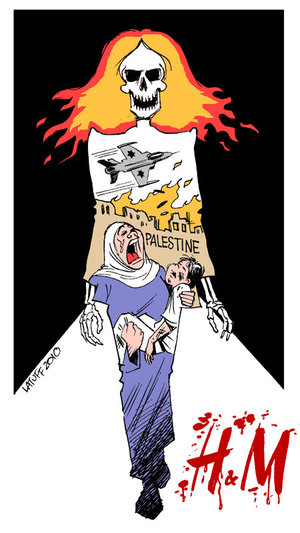Israel allows commercial goods into Gaza: The Independent
Gaza border official says Israel has allowed a commercial shipment of shoes and clothes into the blockaded Palestinian territory for the first time since 2007.
Raed Fattouh says 10 truckloads of shoes and clothes entered the Hamas-run strip Sunday. He says many of the goods were damaged after more than two years in storage.
It was the first non-humanitarian shipment of such items, though an Israeli army spokesman says Israel allows such items into Gaza occasionally as part of UN-coordinated aid shipments.
Gaza has been under a strict Israeli and Egyptian blockade since Hamas seized control of the area in 2007. There are shortages of many basic goods and merchants rely on smuggling tunnels under the Egyptian border.
EDITOR: Call for disarmament by Blix
Though not dealing mainly or only with Israel/Palestine, this has an important bearing on the conflict.
A Season for Disarmament: NY Times
Hans Blix, April 4, 2010
STOCKHOLM — The financial crisis and global warming have had the world’s attention in recent years. Thanks to President Barack Obama’s initiative, perhaps the season for nuclear disarmament has finally arrived.

On Thursday, President Obama will meet Russian President Dmitri Medvedev in Prague to sign a nuclear arms control agreement between the United States and Russia that will reduce their arsenals by 30 percent.
The new treaty will be received positively. There will be praise for the Obama administration’s attitude toward arms control and disarmament and for Russia’s readiness to join hands with the United States.
Though not achieving the drastic cuts in nuclear arsenals and delivery vehicles that the world is longing for, the U.S.-Russian treaty is important and encouraging. Coming after Bush administration policies that nearly sent the two states into a new Cold War, the new treaty constitutes the resetting of an important button. It preserves arrangements for confidence-building mutual inspections and sets the stage for negotiating more far-reaching cuts.
We should be aware, however, that a next step of deeper reductions will hardly be attainable unless there is agreement on extensive cooperation on missile defense. Russia is deeply suspicious that the missile shield could enable the United States to launch an attack on any target in Russia while itself remaining immune to any such attacks. Further bilateral disarmament will also be impeded if Russia feels that the NATO alliance seeks to encircle it by expanding its military cooperation through membership or otherwise with more states neighboring Russia.
The signing on Thursday will take place one year after President Obama’s presentation in Prague of a detailed program for the revival of global nuclear arms control and disarmament. Later this month he will be the host in Washington of a large summit meeting that will focus on nuclear security. In May, the operation of the Nuclear Non-Proliferation Treaty will be the subject of review at a conference in New York in which nearly all governments in the world will take part. The review that took place in 2005 ended in acrimony and some predicted the end of the treaty.
Through adherence to the nonproliferation treaty that was concluded in 1970, states have committed themselves to stay away from nuclear weapons or to move away from these weapons. If all states had joined and fulfilled their commitments, the treaty would have led by now to a world free of nuclear weapons. This has not happened, of course. The number of nuclear weapons, which peaked at more than 50,000 during the Cold War, is still over 20,000 — most of them in the United States and Russia. The number of states with nuclear weapons has gone from five to nine since 1970.
There is also frustration at the lack of progress on many important items relevant to the treaty. The Comprehensive Test Ban Treaty has not entered into force because the United States, China and a number of other states have not ratified it. The negotiation of a convention prohibiting the production of enriched uranium and plutonium for weapons remains blocked at the Geneva Disarmament Conference. The Additional Protocol of the International Atomic Energy Agency for strengthened safeguards inspections remains unratified by a large number of states, including Iran.
Some items are bound to attract much attention at the nonproliferation treaty review conference in May. One is that 20 years after the end of the Cold War, the obligation of five nuclear-weapon states under the treaty to negotiate toward nuclear disarmament has not led us anywhere near zero. Another grievance — especially among Arab states — is that Israel has nuclear weapons and has refrained from adhering to the treaty. A third is that the treaty has been violated by several states. Although Iraq and Libya have been brought into compliance, North Korea has not and Iran and perhaps others might be aiming to ignore the treaty.
Hans Blix was the head of the International Atomic Energy Agency from 1981 to 1997 and chief U.N. arms inspector for Iraq from 2000 to 2003.